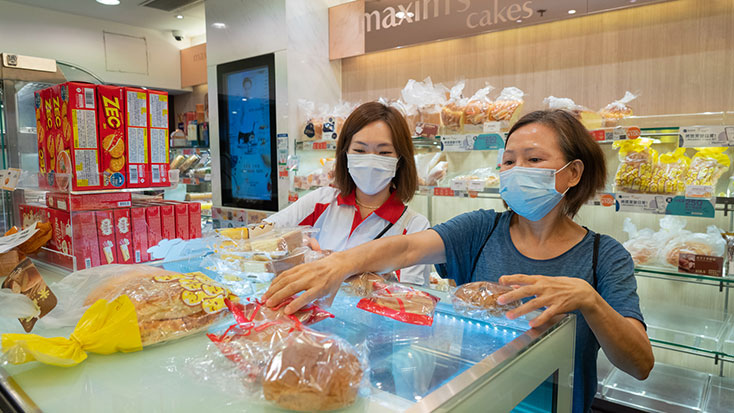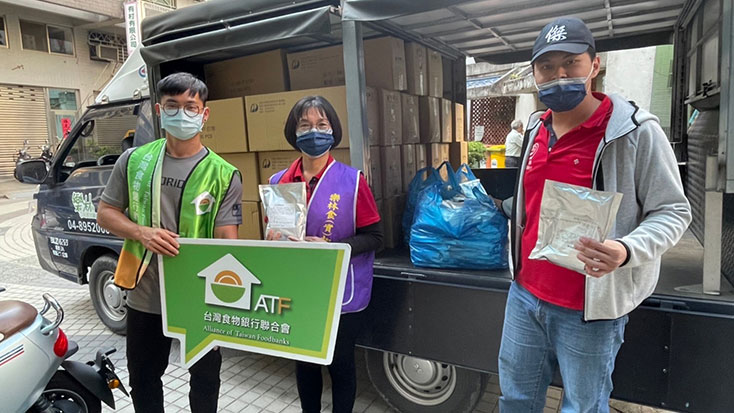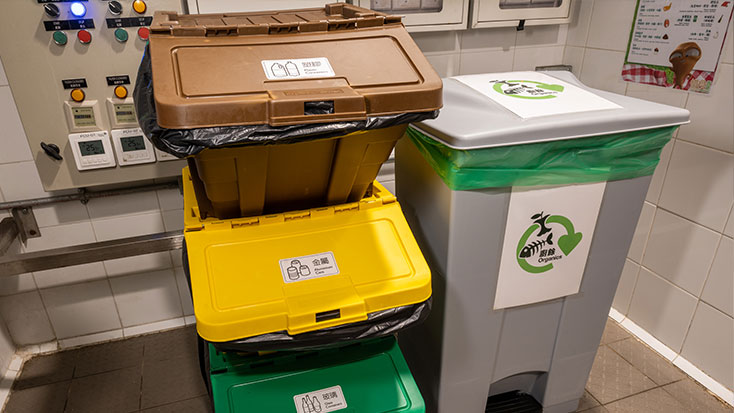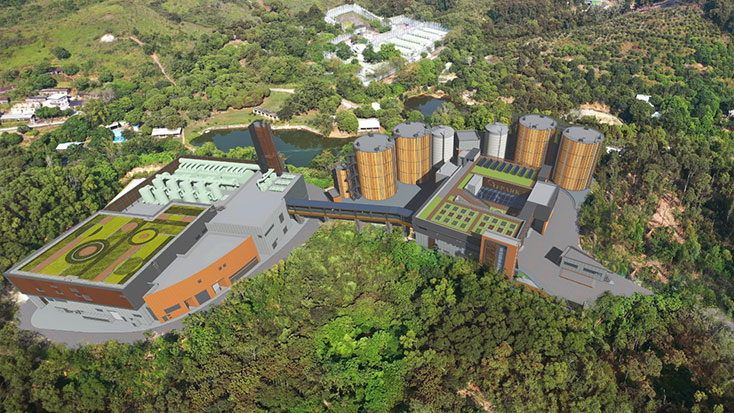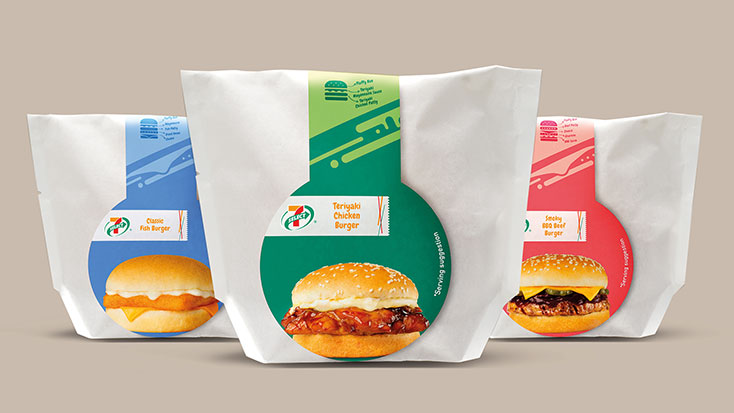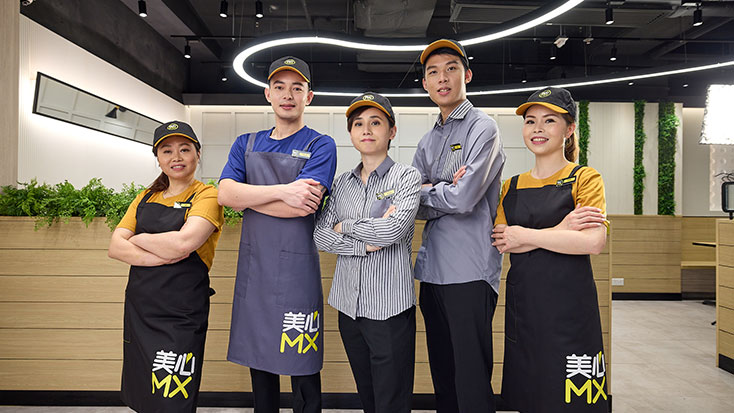Our Approach
The waste hierarchy is followed by our Group businesses to manage waste and resources appropriately, including for food, plastic and construction waste. We are also conscious of the impact of our operations on the environment and are taking actions to support biodiversity conservation initiatives.
Focus
Resource Management and Circularity
We try to prevent and reduce waste. Where waste is generated, we work to close the loop by converting waste into new products. In 2022, two of our businesses have made significant achievements on elimination of single-use plastic. A number of businesses have also set industry-specific targets to reduce or divert waste.
Waste performance
In 2022, the Group generated a total of 4.5m tonnes of waste, and 92% of it was diverted
Initiatives Across the Group
Utilising palm oil waste for circularity
Most of the Group’s waste comes from Astra Agro Lestari (‘AAL’), Astra’s agribusiness subsidiary. AAL operates zero-waste mills and converts all non-hazardous palm oil waste into valuable resources. Working to close the loop where possible, different types of palm oil waste are converted for various uses or utilised directly within operations.
Read moreCreating a community waste bank programme
Astra’s Link & Match programme aims to create a sustainable recycling ecosystem between its businesses and community waste banks, facilitated by a digital application developed by Astra’s strategic partner. Inorganic waste has been sorted into high and low value recyclable materials and handled appropriately. The programme also supports the community to sustain their livelihoods.
Redistributing surplus food and transforming food waste
Where there is surplus food, our retail and restaurant businesses strive to distribute it to those in need to reduce food waste. After all reduction and recycling options have been considered, we strive to encourage collaboration across the Group to transform inevitable food waste into useful resources, such as converting food waste into energy.
Rethinking packaging design and upcycling plastic
The Group’s businesses are always exploring opportunities to minimise single-use packaging and upcycle plastic. Through rethinking packaging design, our retail and restaurant businesses have taken the initiative to reduce or remove unnecessary packaging, where possible.
Also, both Maxim’s MX and Hactl launched a new uniform made from upcycled plastic bottles.
Minimising construction waste with modular construction
Gammon installed modular integrated construction (‘MiC’) units at a student hostel in Hong Kong. With 1,344 prefabricated components manufactured offsite, waste was potentially reduced by over 60%. Using low-carbon concrete and rebar and replacing site diesel generators with grid power also reduced the carbon footprint significantly.
Protecting Biodiversity
We acknowledge the importance of being responsible owners and operators to deliver long-term sustainable value. The Group is formulating a Group Biodiversity Policy that reflects Jardines’ behavioural expectations for biodiversity management. In the meantime, some of our businesses with inherent biodiversity risks have already implemented their own mitigation measures.
Initiatives Across the Group
Preserving the Tapanuli orangutan
PT Agincourt Resources (‘PTAR’), Astra’s subsidiary, strictly manages the biodiversity impacts associated with its operation of the Martable gold mine in Indonesia, in line with industry best practices. Recent efforts are focused on preserving the Tapanuli orangutan. PTAR has established an independent biodiversity advisory panel, conducted an orangutan impact assessment, and pursued broader orangutan conservation initiatives.
Read moreConserving biodiversity
AAL is committed to preserving biodiversity and ensuring that operational activities do not harm wildlife, especially endangered species such as the Sumatran Elephant and Orangutan. They are committed to no development in High Conservation Value (‘HCV’) and High Carbon Stock (‘HCS’) areas, with monitoring programmes across all subsidiaries. It also aims to improve the environment through rehabilitation initiatives.
Procuring supplies from sustainable sources
Our businesses prioritise purchasing products (including timber, paper, seafood and coffee) that are certified by well-recognised sustainability schemes and organisations, such as, the Forest Stewardship Council, the Marine Stewardship Council, Aquaculture Stewardship Council, among others.
Read more